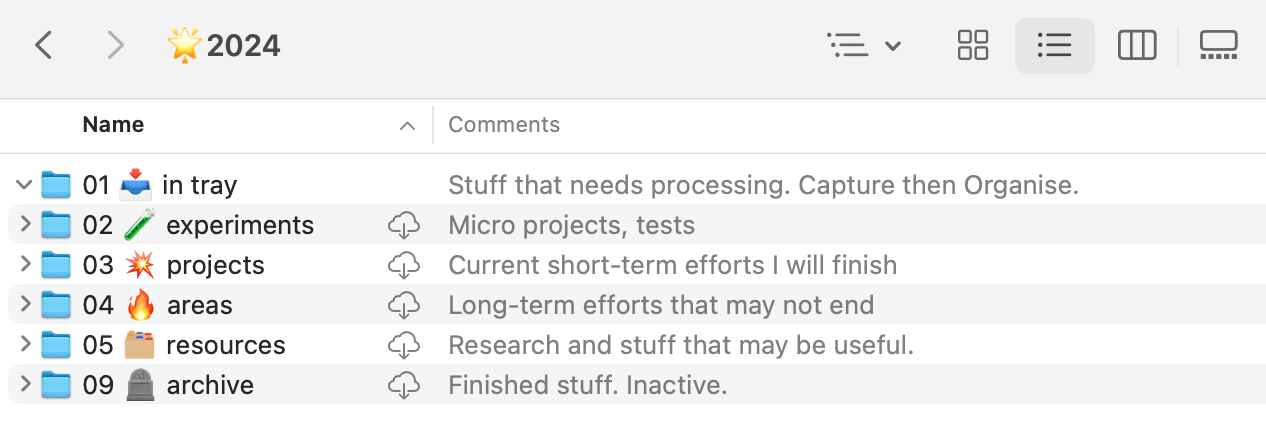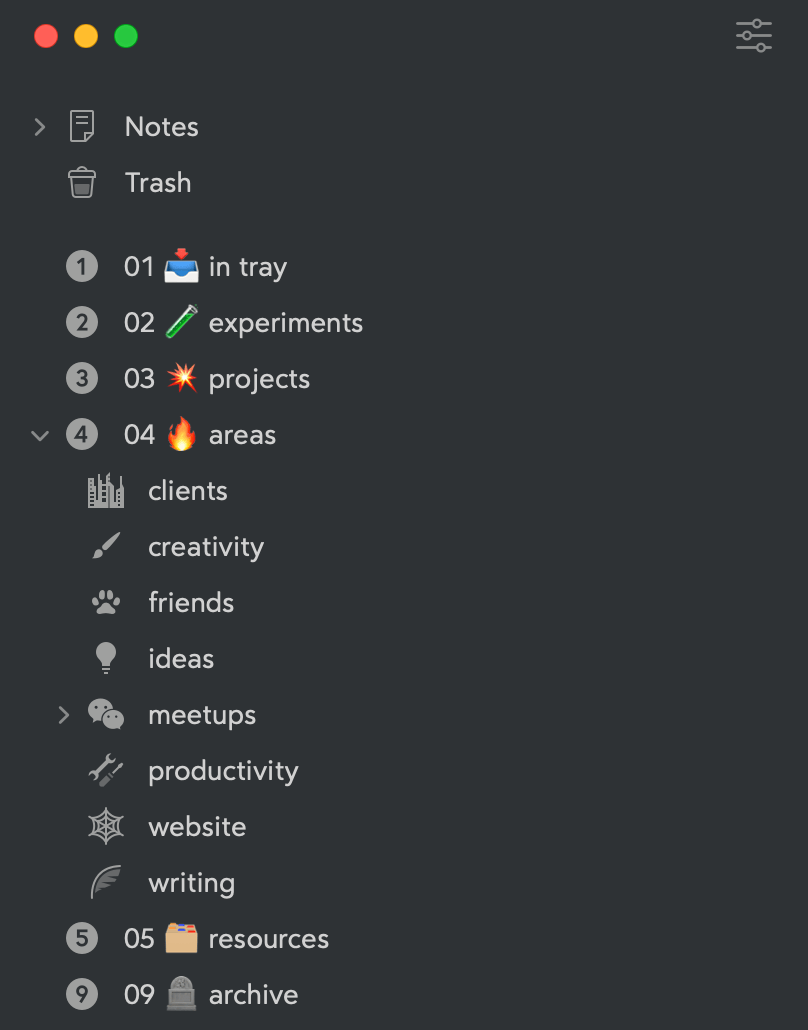My Personal Knowledge Management system
This article is discussed on Reddit, and the Bear community forums.

Having a consistent system for keeping notes about stuff has been a constant battle for me. There are various issues:
- Forming the habits to consistently take notes.
- The structure of the notes.
- The mechanism and tools to use.
- How to organise the notes
Why is keeping notes so important? People talk about their note systems as their second brain, but for me, keeping notes is primarily about enhancing my own brain rather than relying on an external one. Note-taking is a powerful learning tool that allows you to exponentially increase your knowledge. By referring back to your distilled notes, you can prevent forgetting stuff and reinforce your understanding over time.
I’ve written before about how writing research notes for clients helped me to create a habit of writing notes for my future self. If you treat your future self as a client, it helps focus on writing notes that are useful, and to structure and format them in a consistent way. That works really well. But having the right tool to keep the notes in is important too.
Choosing the right tool
The mechanism and tools to use have always eluded me, and I’ve had an annoying tendency to stick to one tool for a while, only to abandon it and try the next shiny new thing. Over the last two or three years I’ve experimented with:
Apple Notes Lovely and simple. Works across MacBook, iPad and iPhone. But no Markdown support, or good mechanism to copy web pages. I’ve returned to Notes a couple of times. I still use it for a few things. I’m an Apple fanboy, but the lack of Markdown support is really a dealbreaker. 💔
Logseq My first attempt using a more sophisticated knowledge management system. Too complex.
Obsidian A dream PKM app for nerds. Really well designed technically. Lots of plugins. But ultimately a distraction. Tempting but must resist. 🛑😬 I’ve written about it here.
Craft I stuck with Craft for about a year. It has some great features. If you like making your notes look pretty, it’s the best option. 🌸😐 It also has some nice sharing functionality.
Notion A nice system but somehow never clicked with me. Like the others, they gradually added more complexity over time, and it became too complex.
Confluence I thought it would be good to use this for my own notes as it is what I use for clients, but it’s just not great for personal note keeping. Minor things like always having to click edit and save when making changes are just annoying.
VS Code and GitHub I use VS Code to edit my website, and I thought it could be good to try to keep notes there, but things like having to create files and link them makes it too cumbersome.
Bear app My app of choice. The winner. 🐻🏆
My notes app requirements
After all that experimentation I have come to a few conclusions about what is important for me in a note-taking app.
Markdown friendly
Markdown is a really simple format, but it retains all the most important formatting features that you want in a document. This makes it a really good format for moving information between documents on different systems.
Why is good Markdown support important?
- Compatibility with web publishing. I am writing this document in Bear, but I may put it on my website later. I maintain my website using the Quarto publishing system, which converts Markdown to web pages (and other formats). So I can easily save this from Bear as a page for my website very easily, and it will retain all the formatting.
- Compatibility with ChatGPT. When you copy a response from ChatGPT, it is in Markdown format. That means that, for example, I can get ChatGPT to create a table containing links, and the table will copy perfectly into Bear.
Lack of good Markdown support is the main reason that Apple Notes is not my app of choice.
Easy to copy web content
If I come across a long article, I want to highlight it, add notes and tags, and keep it to refer back to later. Omnivore is a great service for this, as is Pocket, but I’d like to keep my articles in my notes app. There are various fancy ways to do this (for example there is a great Omnivore plug-in for Obsidian), but I don’t want a fancy way, I just want to click on a button in my web browser and have the page copied to my note system. This should be such a simple thing, but it isn’t. Except with Bear. On installation of Bear, it installs an extension for Safari which adds exactly such a button. It’s not perfect — on some pages it will copy too much and you have to edit the article a bit in Bear. A better process is to select the text you want, then right-click and select Send to Bear (may be in the Services menu).
Great design and simplicity
The best tools are simple, and do one thing really well. One of the problems with notes apps is that notes serve multiple purposes, so there is a tendency to keep adding functionality for lots of edge cases, and so the tools keep getting more complex. Counterintuitively, simplicity is really hard. Apple Notes is fairly simple, but falls down in being closed by not having good Markdown support. I need my notes to be flexible, not locked in. Bear wins on simplicity. It is an almost perfectly designed app.
My Bear set up
To organise my stuff I use a modified version of the PARA method. It’s fairly simple. PARA stands for Project, Area, Resource, Archive. This is what it looks like in my file system:

As you can see from the above, I’ve added a couple of additional folders - In tray, for stuff that I want to do stuff with but not right now, and experiments. This folder is for the small experiments to try things out I often do during the day — things that aren’t projects, they are just little tests.
You will also see that I number these folders. This is inspired by Johnny Decimal, which is a nice idea for organisation but just too complicated to do in full. However it does work to keep folders in the same order across different systems, which I like.
Bear just uses tags, and doesn’t have folders. This would probably be a dealbreaker for me, except that it has a rather wonderful solution — nested tags. This means that you have the best of both worlds — you can organise things in a structured way, and you can also have multiple tags for a single piece of content. This is perfect. My organisational system works well in Bear too:

The future
Have I found the ultimate setup for me? I hope so, but I somehow doubt it. I’ve come to realise that I enjoy creating processes, so all this testing of different software and methods has been something I’ve enjoyed doing, and not just a waste of time. As dads are prone to say to children complaining about long car journeys — the journey is part of the adventure. But I do hope that now I have the basic setup finished, and I can focus on making better notes for my future self, rather than finding the right setup.
Now I’m going to save this note as a Markdown file for my public website… It works beautifully.